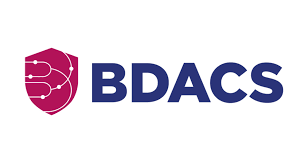The U.S. Securities and Exchange Commission (SEC) has approved eight proposals for listing spot Ethereum exchange-traded funds (ETFs) for public trading in the United States.
The SEC’s notice of approval, which was published on May 23, 2024, came just before the expiration of its decision-making window to accept or reject the applications from major U.S. asset managers, including Grayscale, VanEck, Blackrock, and ARK Investments/21Shares
The eight approved Ethereum ETFs are Grayscale’s Ethereum Trust, Bitwise’s Ethereum ETF, Blackrock’s iShares Ethereum Trust, VanEck’s Ethereum Trust, ARK Investments/21Shares’s ARK 21Shares Ethereum ETF, Invesco Galaxy’s Ethereum ETF, Fidelity’s Ethereum Fund, and Franklin Templeton’s Franklin Ethereum ETF. These funds will be available on Nasdaq, NYSE ARCA, and CBOE BZX.
However, these funds are not yet open for public trading.
Bloomberg ETF Analyst Jeff Seyffart predicted that these Ethereum ETFs could take a while before they launch for public trading. “We’re expecting it to take a couple weeks but could take longer. Should know more within a week or so!” the analyst noted in a recent social media post.
For trading to begin, the SEC must approve the S-1 registration statements from the potential issuers, which it demands must be amended to fulfil certain obligations. Notably, VanEck has already made amendments to its statements.
According to Seyffart, approving the amended S-1 statement can take months, “up to 5 months in some examples.” However, he expects this process to be fast-tracked for the current applications.
RELATED: UK Approves First Bitcoin and Ether ETPs for Professional Investors, Trading Begins May 28
U.S. House of Reps Passes the CBDC Anti-Surveillance State Act
This SEC’s decision on the Ethereum ETFs follows the U.S. House of Representatives’ passage of two pro-crypto bills: the Financial Innovation and Technology (FIT) Act and the CBDC Anti-Surveillance State Act (H.R. 5403).
RELATED:
Notably, the CBDC Anti-Surveillance State Act (H.R. 5403), sponsored by Majority Whip Tom Emmer, aims to prevent the Federal Reserve from creating a central bank digital currency (CBDC) without explicit congressional authorization. The legislators believe CBDCs pose risks of invading financial privacy and government overreach.
Chairman Patrick McHenry, while highlighting the bill’s importance, stated that it protects Americans from potential financial surveillance akin to the systems used in China.
These legislative actions, along with regulatory approvals from the SEC, signal a significant shift in the U.S. financial landscape towards greater acceptance and integration of digital assets. Notably, the SEC approved 11 spot Bitcoin ETFs in January 2024, and now, the U.S. market for these funds is arguably the world’s largest.
If you want to read more news articles like this, visit DeFi Planet and follow us on Twitter, LinkedIn, Facebook, Instagram, and CoinMarketCap Community.
“Take control of your crypto portfolio with MARKETS PRO, DeFi Planet’s suite of analytics tools.”





















